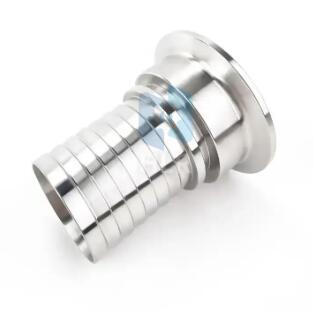An In-Depth Look at Stainless Steel Pipe Connector Fittings: Types, Applications, and Advantages
2024-08-28
Stainless steel pipe connector fittings are essential components in plumbing, industrial piping, and fluid handling systems. Known for their durability, corrosion resistance, and ability to withstand high pressures, these fittings are widely used across various industries. In this blog, we will explore the different types of stainless steel pipe connector fittings, their applications, and the advantages they offer over other materials.
1. Understanding Stainless Steel Pipe Connector Fittings
Stainless steel pipe connector fittings are used to join, redirect, or terminate sections of pipe in a plumbing or piping system. They are available in various types, each serving a specific function:
- Elbows: These fittings are used to change the direction of the pipe, typically at angles of 45° or 90°. Elbows are commonly used in systems where space is limited or where the pipe needs to navigate around obstacles.
- Tees: A tee fitting allows for the connection of three pipe sections, forming a T-shaped junction. This is useful for branching a single pipeline into two directions or combining two pipelines into one.
- Couplings: Couplings are used to connect two sections of pipe, either of the same diameter (straight couplings) or different diameters (reducing couplings). They are essential for extending pipe runs or repairing damaged sections.
- Adapters: These fittings are used to connect pipes of different materials or sizes, ensuring compatibility between different parts of a system.
- Flanges: Flanges are used to create a strong, leak-proof connection between pipes or between pipes and other equipment. They are often used in high-pressure systems where a reliable seal is crucial.
- Caps and Plugs: These fittings are used to seal the ends of pipes, either temporarily or permanently. Caps fit over the outside of the pipe, while plugs are inserted into the pipe end.
2. Applications of Stainless Steel Pipe Connector Fittings
Stainless steel pipe connector fittings are used in a wide range of applications, including:
- Plumbing Systems: In residential, commercial, and industrial plumbing, these fittings are used to connect water supply and drainage pipes, ensuring leak-free connections that can withstand corrosion and pressure over time.
- Chemical Processing: In chemical plants, stainless steel fittings are essential due to their resistance to corrosive substances and ability to handle high temperatures and pressures.
- Oil and Gas Industry: The oil and gas industry relies on stainless steel fittings for pipelines that transport crude oil, natural gas, and other petroleum products. The fittings' durability and resistance to harsh environmental conditions make them ideal for these demanding applications.
- Food and Beverage Industry: Stainless steel is a preferred material in food and beverage processing because it is non-reactive, easy to clean, and resistant to contamination. Fittings made from stainless steel ensure that pipelines meet strict hygiene standards.
- Pharmaceutical Industry: In pharmaceutical manufacturing, stainless steel fittings are used to maintain the purity of fluids and gases in the production process, preventing contamination and ensuring product quality.
3. Advantages of Stainless Steel Pipe Connector Fittings
Stainless steel pipe connector fittings offer several advantages over fittings made from other materials:
- Corrosion Resistance: Stainless steel is highly resistant to corrosion, making it suitable for use in environments where the fittings are exposed to moisture, chemicals, or saltwater.
- Durability: Stainless steel fittings are known for their strength and long service life. They can withstand high pressures, extreme temperatures, and mechanical stress without deforming or breaking.
- Hygiene: The smooth surface of stainless steel is easy to clean and does not harbor bacteria, making it ideal for use in sanitary applications such as food processing and pharmaceuticals.
- Aesthetic Appeal: Stainless steel has a sleek, modern appearance, making it a popular choice for visible plumbing systems in commercial and residential buildings.
- Environmental Friendliness: Stainless steel is a recyclable material, making these fittings a sustainable choice for environmentally conscious projects.
Conclusion
Stainless steel pipe connector fittings are a vital component in many piping systems, offering reliability, durability, and versatility. Their resistance to corrosion, ability to withstand extreme conditions, and ease of maintenance make them an excellent choice for a wide range of applications. Whether in plumbing, industrial processes, or specialized industries like pharmaceuticals, stainless steel fittings provide the performance and longevity needed for efficient and safe operations.



